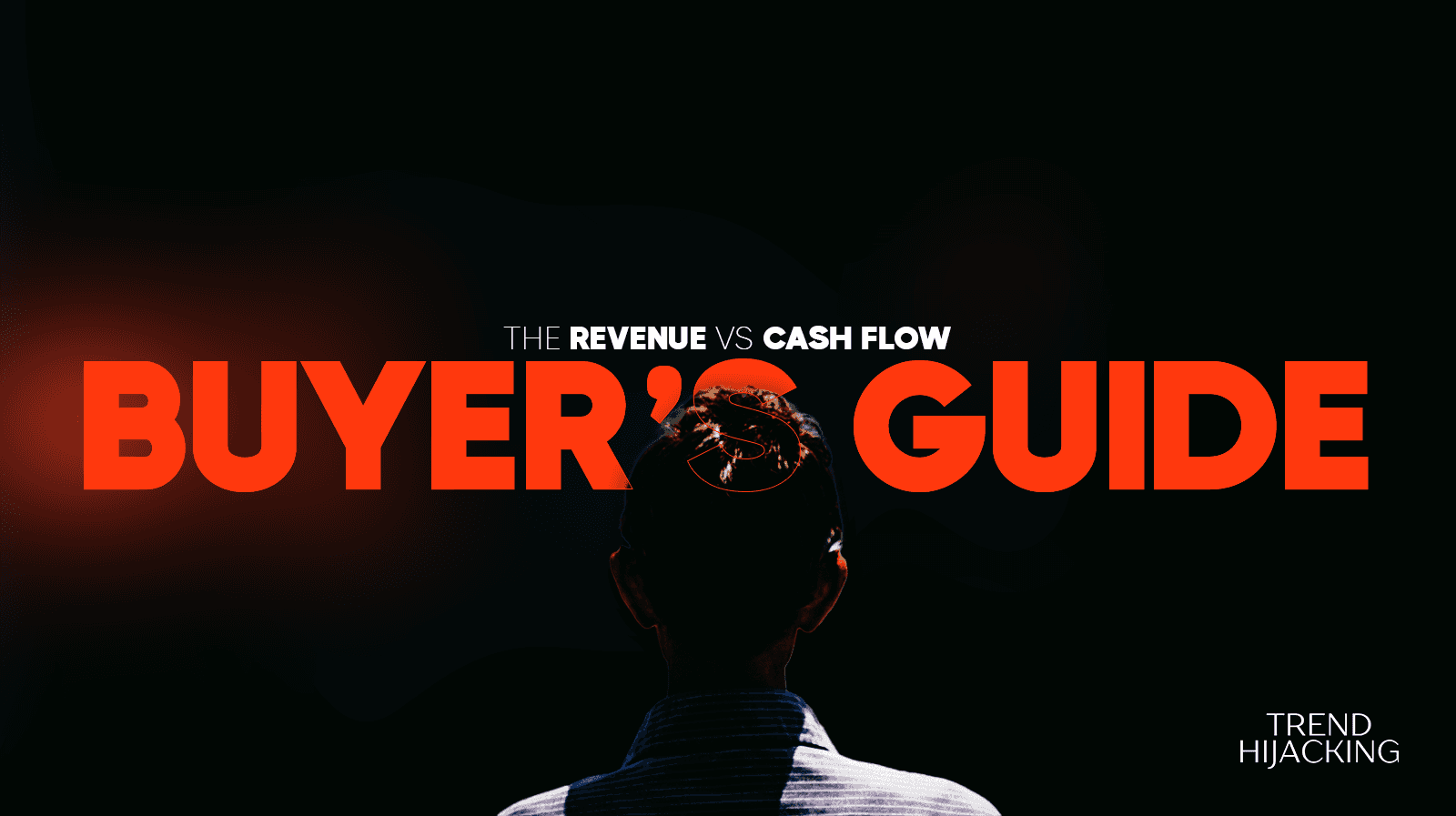
What Does Owner Financing Mean When Buying A Business
One of the best parts about buying an existing business is that you don’t have to pay the full price upfront in cash.
Many deals use a mix of business acquisition financing options like bank loans, personal funds, and something called owner financing.
If you are new to business acquisitions, this term may sound vague or informal.
But owner financing is one of the most common financing options available for you.
It lets you purchase a business you could not afford otherwise.
And it can help the seller get a deal done faster while often getting a fair price.
This article explains what owner financing means, how it works, why sellers use it, and what both sides should consider before agreeing to it.
What is The Meaning of Owner Financing?

Owner financing simply means that the seller allows you (the buyer) to pay part of the purchase price over time instead of requiring full payment up front.
In other words, the seller acts like your lender. You just need to sign a promissory note that outlines how much you owe, the interest rate, and the payment schedule.
For example, say a business sells for $800,000. As a buyer, you might pay $400,000 upfront through savings and a loan.
The seller might “carry” the remaining $400,000, and then you pay that amount in a span of over 3 to 7 years with interest.
This approach is quite common in small business acquisitions. According to a 2023 Market Pulse Report from the International Business Brokers Association (IBBA), around 60% of small business deals include some form of seller financing.
This happens because banks often do not fund the full purchase price of a business.
This is especially true if the business is under $2 million in revenue. Owner financing jumps in to fill this gap.
Related: How To Get Financing For Buying A Business
We Help You Buy / Build, Manage and Scale E-commerce Brands for an EXIT
E-commerce Simplified for Busy Individuals – We handle the buying, building, and scaling, so you can focus on what matters.
Growth-Focused Strategies – From sourcing to marketing, we drive growth and prepare you for a profitable exit.
Expertly Managed Exits – We build a high-value brand designed for a Lucrative exit.
Why Sellers Offer Owner Financing

When considering seller or owner financing, most people get a picture of a plan that benefits the buyer more than the seller.
But that’s not the whole picture…
Sellers often gain clear advantages from this kind of agreement, and this is the reason they agree to it in the first place.
Here are some TOP reasons why a seller will agree to an owner financing option:
1. More Buyers Can Afford The Deal
The sellers think of it this way: If a buyer needs to raise 100% of the cash, this will limit how many potential buyers exist.
If the seller is willing to finance part of the sale, the buyer pool becomes larger. This increases the chance of selling the business at a fair price.
2. Seller Financing Equals Faster Closing
Yes! Deals that depend on bank loans alone sometimes stall or collapse.
Case in point, during the 2008 financial crisis, the share of syndicated loans used for M&A financing in developed countries plummeted from 44% in 2007 to 25% by the end of 2008, directly reflecting the increased difficulty and failure rate of deals dependent on bank funding during periods of credit tightening.
On the other hand, owner financing can significantly reduce those delays because it reduces the amount the buyer must borrow.
3. Sellers Earn Interest
This is one FACT about owner financing many people don’t know: The unpaid portion of the purchase price earns interest.
Typical interest rates can range from 5% to 9%.
This allows the seller to earn more money than they would if they received all cash and placed it in a standard savings account.
4. Signals Confidence in the Business
If the seller is willing to finance part of the deal, it signals that they believe the business will continue to perform well long after they sell it.
As a buyer, you should take this as a positive sign that you’re a profitable business with long-term growth potential.
Why Buyers Like Owner Financing

Buyers have every reason to go for an owner-financing kind of arrangement.
And the biggest reason behind this is that it can help significantly reduce financial pressure and risk associated with existing business acquisitions.
Let’s take a look at some key reasons you should consider seller financing as a buyer:
1. You Pay Less Cash Upfront
This is a no-brainer! With the owner financing the acquisition, you simply don’t need to save or borrow the entire amount. This makes the deal more achievable.
2. Easier Approval Compared To a Bank Loan
Traditional lending is a complex process. They require credit checks, collateral, business plans, and other detailed information.
This makes owner financing a more flexible option for most buyers.
Because the seller already knows the business, they focus more on whether the buyer can run it instead of their credit scores.
3. Shared Interests
If the seller is financing part of the deal, it means they want the business to keep performing well.
They may help train the new owner to ensure a hassle-free transition and continued smooth running of the business post-acquisition.
Related: Can You Get An SBA Loan For An Online Business?
How Do Seller Financing Payments Work?

Now that you have gained a good grasp of what owner financing is all about and how it works, you might now be asking yourself how exactly it works.
Just like the traditional loans, the owner-financed payments are usually made monthly.
While the terms tend to vary, they all share some common structures, such as:
Length: 3 to 7 years
Interest rate: 5% to 9%
Down payment: 20% to 50% of the total price
Collateral: Often the business assets
When a buyer and seller enter into an agreement for seller financing, they must sign a promissory note.
This note simply outlines what happens if the buyer does not make the expected payments.
In many cases, the seller can repossess the business.
With this in mind, we advise you to use a business acquisition lawyer to help you draft and review the agreement.
This is something you don’t want to do based on a handshake and end up regretting later on.
Related: Is Entrepreneurship Through Acquisition Legit?
What To Check Before Agreeing To Owner Financing

Even though owner financing comes with a set of benefits for both sides, it is not always risk-free.
In this section, we’ll discuss the most important considerations to make before you agree to this financing method:
For Sellers:
Confirm the buyer has real operating ability. If they can’t operate the business after acquiring it, the risk of failure is high. A failed buyer means missed payments.
Review the buyer’s credit and background. You want to get an idea of whether they’ll honor your agreement.
Consider requiring collateral or a personal guarantee. This can help shield yourself in case they fail to pay.
For Buyers:
Make sure the business generates enough cash flow to cover monthly payments.
Review the business tax returns, financial statements, and customer concentration.
Understand why the owner is selling the business in the first place. If the business is declining, then the sell financing method will fix that problem.
Ideally, as a buyer (or acquisition entrepreneur), you should base financing on actual cash flow, not future hopes.
According to data from BizBuySell’s 2023 Insight Report, small businesses are typically valued at around 2-3x their annual earnings.
If a seller is asking for more than this range, then as a buyer, you should question the valuation and be ready to walk away if things just don’t add up.
And most importantly, do NOT get emotional or romantic about the idea of “being your own boss.” The numbers must support the payments.
We Help You Buy / Build, Manage and Scale E-commerce Brands for an EXIT
E-commerce Simplified for Busy Individuals – We handle the buying, building, and scaling, so you can focus on what matters.
Growth-Focused Strategies – From sourcing to marketing, we drive growth and prepare you for a profitable exit.
Expertly Managed Exits – We build a high-value brand designed for a Lucrative exit.
Consider This Real-Life Example of Owner Financing:
Let’s say you’re buying an existing e-commerce brand that earns $250,000 in annual net profit and sells for $625,000.
The buyer puts down $250,000.
The seller finances the remaining $375,000 over 6 years at 6% interest.
Monthly payments on that loan come out to about $6,200.
If the business's profit after expenses can cover that payment comfortably, this could be a healthy deal.
But if profit is inconsistent or relies heavily on the owner’s personal involvement, then the buyer may struggle to make payments after the takeover.
When Is Owner Financing A Bad Idea?

Just because seller financing saves you from paying the full amount upfront doesn’t mean you should always go for it.
This business acquisition financing method can be a mistake if:
The business depends heavily on the seller’s personal network.
The business has unclear or declining financials.
The buyer has no relevant experience.
The seller is rushing the sale without transparent records.
If something feels off, it usually is. Trust your gut.
As we always advise our acquisition clients, a business sale should NOT feel rushed or emotional.
Does Owner Financing Work When Buying Established E-commerce Businesses?

Since at Trend Hijacking we’re all about buying established e-commerce businesses, we can’t close this article without discussing whether you can use seller financing for buying an e-commerce business.
Owner financing can work when buying an established e-commerce business, but both sides need to look closely at how the business earns revenue.
Unlike a physical store, an e-commerce business may rely on paid ads, marketplace algorithms, supplier relationships, and email list performance.
These factors can change quickly.
Because of this, sellers often want to see that the buyer understands online marketing and basic store operations.
Most sellers who offer financing will ask for clear proof that the store’s traffic and revenue sources are stable.
As a buyer, you should review analytics and verify supplier agreements before agreeing to any long-term payment plan.
If the store has steady organic traffic, strong repeat customers, and reliable fulfillment, owner financing can be a practical structure.
It can allow you to step into an already profitable operation without committing all of your capital upfront.
At the same time, the seller earns interest and maintains confidence in the business’s continuity.
Frequently Asked Questions About Owner Financing When Buying A Business:
Here are quick answers to some of the commonly asked questions about seller financing for buying established businesses:
How does owner financing work when buying a business?
Owner financing means the seller lets the buyer pay part of the purchase price over time instead of paying everything up front. The buyer signs a promissory note with set monthly payments and interest. The business assets usually serve as collateral. Both sides should use a lawyer to formalize the agreement.
Is owner financing a good idea for a business?
Owner financing can be a good idea for a business because it expands the pool of potential buyers and can lead to a faster sale. The seller earns interest and may get a higher total price. However, the seller must trust the buyer’s ability to operate the business and make payments consistently.
Is owner financing a good idea for the buyer?
Owner financing can be a good idea for the buyer because the buyer needs less cash upfront and may avoid strict bank loan requirements. It also aligns incentives because the seller wants the business to succeed. The buyer still needs to verify the business’s financial health and ensure cash flow supports the payments.
Do you pay closing costs with owner financing?
Yes, you’ll need to pay closing costs with owner financing. These costs may include legal fees, filing fees, and third-party due diligence expenses. The exact amount varies based on deal size and structure. The buyer and seller can negotiate how these costs are divided.
Do you need a down payment for owner financing?
Most owner-financed deals require a down payment. Typical down payments range from 20 to 50% of the total purchase price. The down payment shows the buyer’s commitment and reduces the seller’s risk. The remaining balance is repaid over time with interest.
Final Thoughts
Owner financing is a common financing method that helps buyers purchase businesses without paying the full price up front. The seller acts like a lender, and the buyer repays part of the price over time with interest. It can help deals close faster, expand the pool of qualified buyers, and ensure a successful handoff.
But both parties (buyer and seller) need to treat owner financing seriously. Agreements must be clear, financial records must be honest, and the buyer needs to be capable of running the business. If used correctly, owner financing can be a practical and fair way to sell and buy a business.
Acquire an E-commerce Business in 60 Days
If you want a hands-off online business that already makes money, we can guide you through the entire process. Our smart acquisition team finds established e-commerce stores with consistent sales and repeat customers. We verify the numbers, help with negotiations, and support you through closing. You avoid the risky guesswork. You get a business that already works and can grow with good management.
A Done-For-You E-commerce Business
Discover how we Build, Launch, and Scale a 6-figure/month Business for You
Learn more
The 6-Step Blueprint to E-Commerce Acquisition
See how we Acquire, Convert, and Scale with Real Case Studies to Prove It.



















